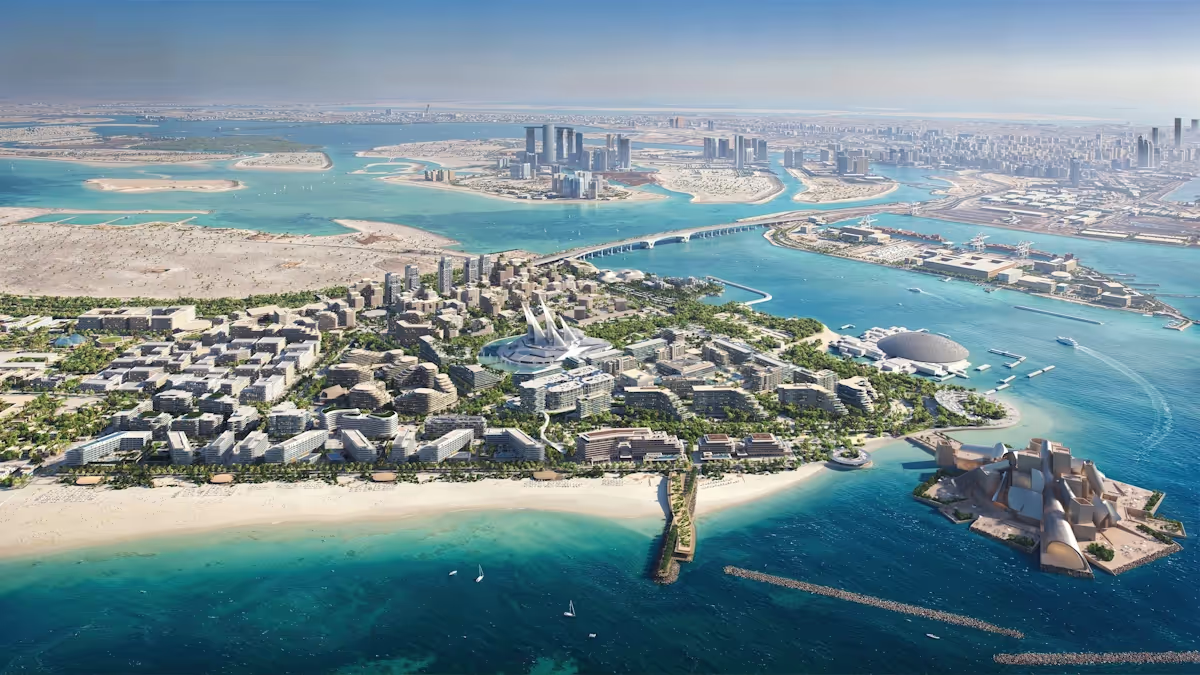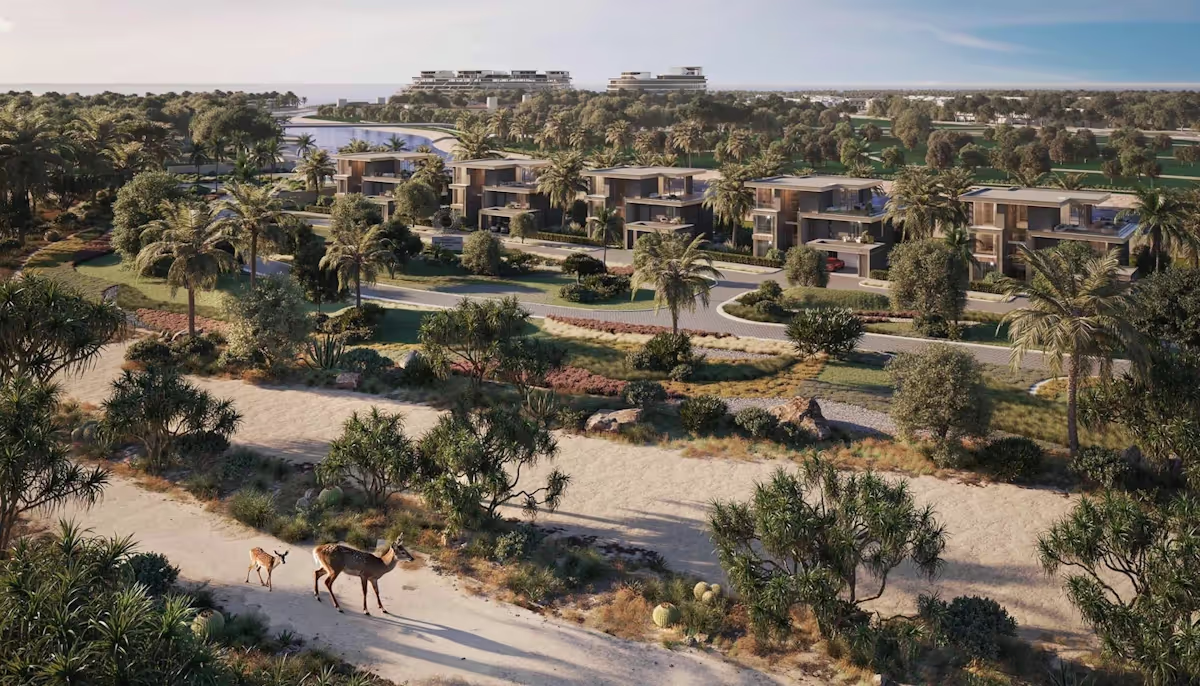How Abu Dhabi’s Handover Rules Protect Your Off‑Plan Investment
Buying an off-plan property in Abu Dhabi is one of the most secure ways to enter the real estate market, thanks to strict handover regulations enforced by the Department of Municipalities and Transport (DMT) and the Abu Dhabi Real Estate Centre (ADREC). These rules—recently strengthened by Law No. 2 of 2025, which updates Law No. 3 of 2015—protect buyers from financial loss, ensure timely delivery, and guarantee that quality standards are met before you collect the keys.
This article explains the updated framework and what it means for investors and homeowners.
Key Takeaways
- Payments are kept in escrow accounts and released only when construction milestones are met.
- SPAs (Sales and Purchase Agreements) must clearly state handover dates, with penalties if developers delay.
- Buyers can inspect their units before handover, and every property comes with a one-year defect liability period.
- Only licensed and registered developers are allowed to sell off-plan properties in Abu Dhabi.
- All handover costs, including the 2% ADM registration fee, must be disclosed in the contract from the start.
- Post-handover payment plans such as 40/60 or 50/50 are legally protected once included in the SPA.
1. Escrow Accounts: Your Money Stays Protected
An escrow account is a special bank account where buyer payments are held in trust until certain construction milestones are met. In Abu Dhabi, these accounts are managed by DMT-approved banks, ensuring that your funds are not directly handled by the developer.
Abu Dhabi’s escrow system, first introduced under Law No. 3 of 2015, has been made even stronger by Law No. 2 of 2025.
- Funds deposited into escrow cannot be withdrawn until at least 20% of construction is completed and verified by independent engineering auditors approved by DMT.
- Developers are prohibited from using escrow funds for land purchases, broker commissions, or marketing expenses.
- If a project stalls or is canceled, DMT can revoke the developer’s license and appoint another party to complete construction.
Why this matters: your payments are tied to actual building progress and remain protected in escrow until verified milestones are reached, giving you confidence that your investment is secure.
2. Handover Timelines with Legal Backing
In real estate, handover is the moment when the developer officially delivers the finished property to the buyer. To protect investors in Abu Dhabi, this process is tightly regulated and must be clearly defined in the Sales and Purchase Agreement (SPA).
Every SPA must include a clear handover date. Under the updated law:
- Buyers have a legally enforceable right to receive their property on time.
- Delays can trigger penalties or compensation, depending on the SPA terms and ADREC enforcement.
- Developers who consistently fail to deliver may face administrative sanctions.
Why this matters: you can plan your move-in or rental schedule with certainty, as developers face penalties for delays and must honor the agreed delivery date.
3. Snagging and Defect Liability
Before handover, buyers have the right to conduct a snagging inspection—a detailed check of the property for defects such as wiring faults, uneven floors, or incomplete finishes.
- Developers are expected to fix any issues within about 30–60 days, based on common practice.
- Abu Dhabi law gives buyers a full one-year warranty period after handover, during which the developer must repair any defects that appear.
Why this matters: you receive a home that meets promised quality standards, and if defects appear, the law obligates the developer to fix them at no extra cost.
4. Developer Licensing and Registers
Before a developer can sell off-plan property in Abu Dhabi, they must be officially licensed and registered with the Abu Dhabi Real Estate Centre (ADREC). Under Law No. 2 of 2025, the rules have been expanded:
- Licensing now covers not only developers but also related activities like brokerage, property management, valuation, and surveying.
- Every developer must appear in the Real Estate Development Register and renew their license each year.
- No developer can market or sell off-plan units without first having an approved license and an escrow account in place. Projects launched without meeting these requirements can be fined, suspended, or shut down by ADREC.
Why this matters: you are protected from unverified or unreliable operators, since only licensed and registered developers under ADREC oversight can sell off-plan properties.
5. Transparent Fees at Handover
One of the biggest concerns for property buyers is being surprised by extra charges at the last minute. Abu Dhabi’s updated rules make sure this can’t happen.
- The Abu Dhabi Municipality (ADM) registration fee is fixed at 2% of the property value and must be paid at handover.
- Any service charges or administrative fees must be pre-approved by ADREC before they are applied.
- All costs have to be clearly listed in the SPA from the beginning, so developers cannot add unexpected charges later.
Why this matters: you can budget with confidence, as all fees are disclosed upfront in the SPA and surprise costs at handover are prohibited.
6. Post-Handover Payment Options
Abu Dhabi developers often make buying easier by offering post-handover payment plans, allowing buyers to spread out their costs instead of paying everything upfront.
- The most common structures are 40/60 or 50/50, where you pay part during construction and the rest at handover.
- Some projects provide extended schedules, letting you continue with monthly payments for up to five years after handover.
- Once these terms are written into the SPA, any changes require buyer consent, making the agreed schedule enforceable under the contract.
Why this matters: you can move in without paying the full price upfront, giving you flexibility to manage finances or start generating rental income while completing payments.
New “Triple Protection” Under Law No. 2 of 2025
The latest update to Abu Dhabi’s property laws, Law No. 2 of 2025, introduces a “triple protection” system designed to safeguard everyone involved in the off-plan market:
- Purchasers (buyers): Better escrow controls, clear SPAs with handover dates, and a one-year fault liability period protect buyers.
- Developers: Given organized ways to settle disagreements and protections for their finances, which means they can keep working on projects even if problems arise.
- Financiers (banks and lenders): Given better ways to handle situations like buyers not paying, lowering the risk of mortgage and financing deals.
Why this matters: the law balances the rights of buyers, developers, and financiers, creating a transparent and stable market that makes Abu Dhabi one of the safest places worldwide to invest in off-plan property.
Frequently Asked Questions
1. What is an escrow account in Abu Dhabi off-plan real estate?
An escrow account is a special bank account where buyer payments are kept safe until the developer reaches certain construction milestones.
- In Abu Dhabi, escrow accounts are regulated by Law No. 3 of 2015 and strengthened by Law No. 2 of 2025.
- Payments go into a DMT-approved bank account, not directly to the developer.
- Money can only be released after at least 20% of construction is finished and verified by independent engineers.
- Developers cannot use these funds for land purchases, marketing, or broker commissions—only for construction progress.
2. What is an SPA in Abu Dhabi property purchases?
An SPA (Sales and Purchase Agreement) is a legally binding contract between the buyer and developer. In Abu Dhabi, every SPA must include a handover timeline, penalties for delays, and full disclosure of fees. The Department of Municipalities and Transport (DMT) and Abu Dhabi Real Estate Centre (ADREC) enforce compliance, including use of the unified off-plan contract.
3. How does snagging work in Abu Dhabi off-plan properties?
Before handover, buyers can inspect their property for defects such as wiring issues, leaks, or poor finishing. Developers are obliged to correct these defects within 30‑60 days. Additionally, Abu Dhabi law grants a one-year defect liability period after handover.
4. How are developers licensed in Abu Dhabi?
Developers must register with ADREC and renew licenses annually. They cannot market or sell off-plan properties without an approved escrow account and valid development license. Unlicensed projects face fines or closure.
5. What fees do buyers pay at handover in Abu Dhabi?
The main fee is the 2% Abu Dhabi Municipality (ADM) registration fee, plus any service charges for communal facilities. All fees must be disclosed in the SPA and approved by ADREC to prevent hidden costs.
6. Can buyers in Abu Dhabi use post-handover payment plans?
Yes. Many developers offer 40/60 or 50/50 payment structures, with the final portion due at handover. Some projects provide extended post-handover schedules (1–5 years). These plans must be clearly written in the SPA and cannot be changed unilaterally.






